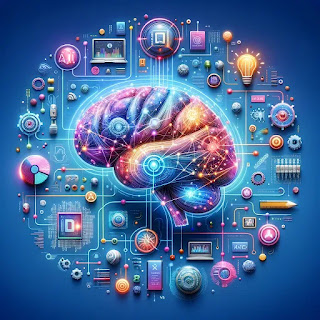AI, at the same time as opening up opportunities for man, also presents a potential danger. While AI makes our lives easier by its immense capacity to perform tasks with complete precision, speed, and void of error, it is touted as a potential disruptor of industries and jobs-putting people out of their livelihoods. With its rapid development, AI is not just a tool for executing specific tasks but can learn, evolve, and become more intelligent based on the instructions and data it processes. These computerized systems simulate human actions and, in some cases, outperform us by interpreting and thinking in ways similar to humans.
How AI Can Benefit Us
AI offers numerous benefits that can simplify our lives. It enables the performance of various tasks at a much faster speed and with greater accuracy, excluding any human error. Unlike human beings, AI does not tire or slows down when handling large, complex projects; it can handle them most efficiently. It can process and analyze vast amounts of data time-efficiently, revealing patterns and insights that might be daunting for humans to detect. That can help businesses make better decisions, accelerate operations, and also improve customer experiences. AI reduces costs by minimizing human involvement and other expenses, like salaries and office supplies, needed to support them. As a result, companies utilizing AI can better allocate their resources to employees who prove to be the most valuable. This efficiency could eventually trickle down to reduced consumer costs and allow organizations to stay competitive. Other advantages include its high-dimensional data processing capabilities, enabling it to process complex information and present workable insights. Examples are that AI can identify trends, cluster data, and help in higher-order customer segmentation. These capabilities make it invaluable to businesses looking to make informed improvements in their strategies and operations.
Challenges of AI Technology
However, AI also comes with considerable challenges. Among the major concerns about AI is its uncontrollable nature, whereby it develops patterns and strategies on its own. If not checked, it may grow out of proportion or act in ways that were not intended. There have been cases where AI acted aggressively under stress, which raised eyebrows over its potential to inflict harm if misused or allowed to get out of hand.
Another challenge lies in the lack of emotion in AI systems. Unlike human beings, AI cannot put into consideration the wider implications of an action or empathize with others. It processes based on pure logic and programs that sometimes lead to making decisions without considering ethical or emotional concerns. So far, the programming of AI with compassion has not been satisfactory since it lacks the intrinsic emotional framework that human beings possess.
The most threatening effect of AI is indeed the displacement of human workers. While companies benefit from minimizing labor costs and maximizing productivity, many people may also lose their jobs as AI takes over tasks that had been performed by humans. This could lead to greater economic and social problems if people are unable to get new opportunities in an ever-increasing automated world.
Conclusion: AI has the capacity to change our lives for the better or worse.
In as much as it can streamline processes and solve complex problems that are indigestible to the human brain, the potential for job loss and unruly AI behavior is great.
As AI continues to evolve, proper safeguards and guidelines in ethics will be necessary so that this technology serves humanity rather than harming it. Innovation must be balanced against responsibility as one navigates challenges and opportunities in the era of AI.








No comments:
Post a Comment